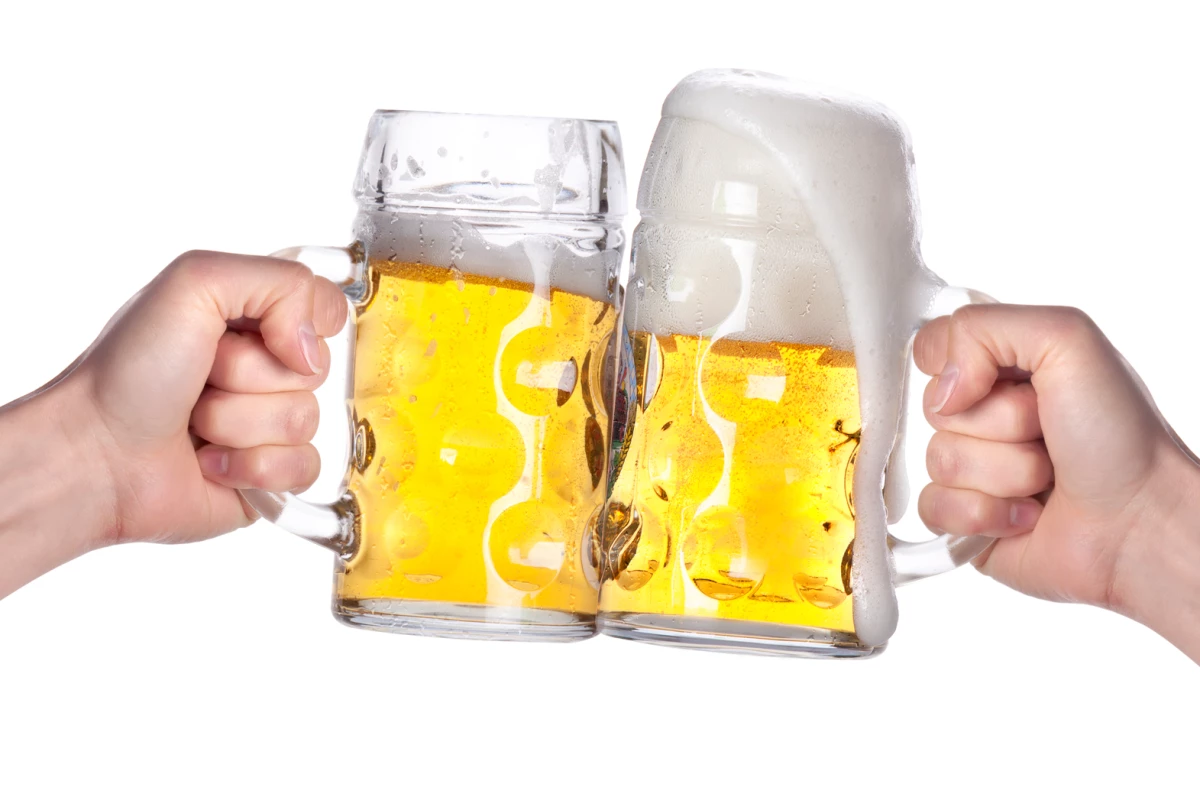A large study of more than 36,000 high-quality MRI brain scans has found that drinking four units of alcohol a day – two beers, or two glasses of wine – causes structural damage and brain volume loss equivalent to 10 years of aging.
The science on alcohol consumption can be confusing and overwhelming. A quick scroll through our coverage over the years will tell you it directly causes cancer, but also reduces inflammation and helps to flush toxins out of the brain. It stunts growth in developing brains by nearly 50 percent, it permanently damages your DNA and is confidently linked with early-onset dementia, but on the other hand, red wine contains antioxidant compounds that are good for your heart, and can even help protect you from bacteria that cause cavities and gum disease.
Some of these studies focus on regular, moderate alcohol intake. Others on sustained high-level alcoholism, and others still on the effects of occasional "binge" events. Some are human studies, some are animal or lab studies. Some are tightly controlled, others introduce the chaos of the real world. Some are small studies, some are large and diverse. It's hard to draw black-and-white conclusions to help you make decisions in your own life.
So here's the deal with the latest study that caught our eye. Led by a team from the University of Pennsylvania, this study examined brain MRIs from an impressive 36,678 patients, stored in the UK Biobank, all middle-aged or older. This study follows up on prior research that had focused on chronic heavy drinkers – a term that includes women that take three or more drinks on the average day, and men that take four or more.
Prior neuroimaging studies had outlined how sustained alcohol abuse at high levels damages the brain over time, resulting in changes to brain structure and connectivity, and an overall loss in brain volume, with the effects most prominent in the frontal lobe, diencephalon, hippocampus and cerebellum. But most of these studies, according to the UPenn team, have been small, some have been contradictory, and many have been poorly controlled.
So this study instead analyzes a huge dataset. The UK Biobank holds the largest collection of high-quality MRI brain scans in the world, and the researchers were able to survey 36,678 patients on their drinking habits, so these MRI scans could be stratified for self-reported alcohol intake and controlled for things like head size, sex, age, height, smoking status, socioeconomic status and a range of other variables.
It's worth noting, though, that the sample is limited mainly to middle-aged individuals of European descent living in the UK. Also, there was no information available on things like binge drinking events in the past, and self-reporting may not be an accurate representation of real-world behavior.
Still, the findings were reasonably clear. The team found that just one to two units of alcohol a day reduces overall brain volume and gray matter volumes across a number of areas, and microstructures in the white matter. A pint or can of beer or cider, or a standard glass of wine, for reference, represents two units.
The effects were reasonably small at this level – the team attempted to put things in context by comparing the brain volume losses to what naturally happens as people get older. In this context, going from zero daily alcohol units to one (say, half a beer) lost about as much brain volume as would be expected over six months of aging.
But the effect is not linear; it compounds. Going from one daily unit to two (half a beer to a glass of wine) was roughly equivalent to two years of aging. Going from two daily units to three (a glass of wine to one and a half) was like aging three and a half years.
People that drink four or more units of alcohol a day showed brain volume loss equivalent to a full 10 years of aging, as compared with abstainers. And again, that's just two cans or pints of beer, which will sound like a trivial amount to many drinkers.
"There is some evidence that the effect of drinking on the brain is exponential," said co-corresponding author Remi Daviet, now from the University of Wisconsin. "So, one additional drink in a day could have more of an impact than any of the previous drinks that day. That means that cutting back on that final drink of the night might have a big effect in terms of brain aging."
In other words, says, corresponding author Gideon Nave, from Penn's Wharton School "the people who can benefit the most from drinking less are the people who are already drinking the most."
Certainly, many further questions remain.
"This study looked at average consumption, but we're curious whether drinking one beer a day is better than drinking none during the week and then seven on the weekend," Nave said. "There's some evidence that binge drinking is worse for the brain, but we haven't looked closely at that yet."
And indeed, this study shows correlation rather than causation, but the team believes that some causal factors might be teased out with the use of new biomedical datasets that are under development now, following young people as they age.
The study was published in the journal Nature Communications.
Source: University of Pennsylvania





